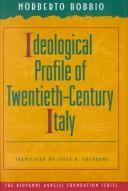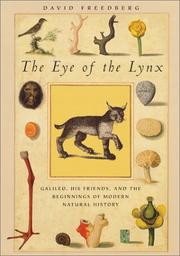| Listing 1 - 10 of 31 | << page >> |
Sort by
|
Book
ISBN: 8870481182 9788870481181 Year: 1985 Volume: 2 Publisher: Lecce : Milella,
Abstract | Keywords | Export | Availability | Bookmark
 Loading...
Loading...Choose an application
- Reference Manager
- EndNote
- RefWorks (Direct export to RefWorks)
Political science --- History --- Political science - Italy - History - 20th century
Book
ISBN: 8820923149 9788820923143 Year: 1997 Volume: 2 Publisher: Città del Vaticano : Libreria editrice vaticana,
Abstract | Keywords | Export | Availability | Bookmark
 Loading...
Loading...Choose an application
- Reference Manager
- EndNote
- RefWorks (Direct export to RefWorks)
Book
ISBN: 8871195035 9788871195032 Year: 1992 Volume: 3 Publisher: Roma Bulzoni
Abstract | Keywords | Export | Availability | Bookmark
 Loading...
Loading...Choose an application
- Reference Manager
- EndNote
- RefWorks (Direct export to RefWorks)
Book
ISBN: 9788857527314 885752731X Year: 2015 Publisher: Milan (Italie) : Editions Mimésis,
Abstract | Keywords | Export | Availability | Bookmark
 Loading...
Loading...Choose an application
- Reference Manager
- EndNote
- RefWorks (Direct export to RefWorks)
L'Italian theory est le nom donné à un ensemble de penseurs italiens qui ont pour point commun de réfléchir à une nouvelle conceptualisation du paradigme du politique reposant sur la mise en valeur de la diversité et le refus de la pensée identitaire. Ces contributions étudient la pertinence de la définition de ce courant, en explorant ses origines, sa circulation, ses détournements et ses usages. ©Electre 2016
Political science --- Science politique --- Philosophy --- History --- Congresses --- Philosophie --- Histoire --- Congrès --- Italy --- Congrès --- Political science - Italy - History - 21th century
Book
ISBN: 882043007X 9788820430078 Year: 1988 Volume: 31 Publisher: Milano, Italy : F. Angeli,
Abstract | Keywords | Export | Availability | Bookmark
 Loading...
Loading...Choose an application
- Reference Manager
- EndNote
- RefWorks (Direct export to RefWorks)
Science --- Sciences --- History --- Histoire --- Boyle, Robert, --- Influence --- Influence. --- Science - Italy - History - 17th century. --- Science - Great Britain - History - 17th century.

ISBN: 0691601461 1400864178 0691043523 1306984440 0691631166 9781400864171 0691043515 9780691043524 9780691043517 9780691601465 Year: 2014 Volume: *1 Publisher: Princeton, NJ
Abstract | Keywords | Export | Availability | Bookmark
 Loading...
Loading...Choose an application
- Reference Manager
- EndNote
- RefWorks (Direct export to RefWorks)
Anyone interested in the entire sweep of political thought over the last hundred years will find in Norberto Bobbio's Ideological Profile of Twentieth-Century Italy a masterful, thought-provoking guide. Home to the largest communist party in a democratic society, Italy has been a unique place politically, one where Christian democrats, liberals, fascists, socialists, communists, and others have co-existed in sizable numbers. In this book, Bobbio, who himself played an outstanding role in the development of Italian civic culture, follows each of the major ideologies, explaining how they developed, describing the key actors, and considering the legacies they left to political culture. He wrote Ideological Profile in 1968 to explain from a personal perspective the history behind that decade's tumultuous politics. Bobbio's defense of democracy and critique of capitalism are among the themes that will particularly interest American readers of this updated edition, the first to appear in English.Beginning in the late nineteenth century with positivism and Marxism, Bobbio next presents the ideological currents that developed before the outbreak of the First World War: Catholic, socialist, irrational and anti-democratic thought, the reaction against positivism, and the thinking of Benedetto Croce. After discussing the impact of the war, the author turns to the revolutionary-reactionary polarization of the postwar period and the ideology of fascism. The final chapters consider Croce's opposition to fascism and the ideals of the resistance and conclude with the post-Second World War "Years of Involvement."Originally published in 1995.The Princeton Legacy Library uses the latest print-on-demand technology to again make available previously out-of-print books from the distinguished backlist of Princeton University Press. These editions preserve the original texts of these important books while presenting them in durable paperback and hardcover editions. The goal of the Princeton Legacy Library is to vastly increase access to the rich scholarly heritage found in the thousands of books published by Princeton University Press since its founding in 1905.
Book
ISBN: 9782728309634 2728309639 Year: 2013 Volume: 478 Publisher: Rome : École française de Rome
Abstract | Keywords | Export | Availability | Bookmark
 Loading...
Loading...Choose an application
- Reference Manager
- EndNote
- RefWorks (Direct export to RefWorks)
Plutôt que de renvoyer à des notions figées et prédéfinies, la réflexion ici conduite sur les échanges entre France et Italie se place sur le terrain empirique des expériences institutionnelles, juridiques, idéologiques, multiples et créatrices. Ces expériences se déroulent dans un contexte, de mieux en mieux connu des historiens, où tout au long des XIIIe-XVIe siècles l’altérité française et italienne se construit progressivement, dans une stimulante rivalité-fascination, sans jamais aboutir à une reprise totale du modèle. Il existe bien un fonds commun, légué par la romanité dans son entier, sur lequel ont pris corps des expériences suffisamment différenciées pour que l’on puisse, précisément, parler d’altérité et donc, éventuellement, d’échanges de modèles. L’alchimie par laquelle les acteurs de cette histoire ont nourri leur conscience de l’autre, aboutissant au renforcement du sentiment d’une altérité, cette alchimie-là est bien au cœur du propos de cet ouvrage. L’attention y est focalisée sur l’échange tel qu’il est pensé, vécu et rapporté dans les documents. Outre les projets, le statut des hommes et des femmes qui en furent porteurs font ici l’objet d’une synthèse : artistes, conseillers, légats, ambassadeurs, épouses ou soldats, des deux côtés des Alpes, l’expatrié devient, en tant que tel, un personnage très important de l’État. Même s’il n’est pas le seul, le laboratoire franco-italien fut sur ce point particulièrement actif.
Political science --- Science politique --- History --- Histoire --- France --- Italy --- Italie --- Relations --- Political science - France - History - To 1500 --- Political science - Italy - History - To 1500

ISBN: 0226261476 0226261484 9780226261478 9780226261485 Year: 2002 Publisher: Chicago, Ill. University of Chicago Press
Abstract | Keywords | Export | Availability | Bookmark
 Loading...
Loading...Choose an application
- Reference Manager
- EndNote
- RefWorks (Direct export to RefWorks)
Publisher description
Science --- History --- History. --- Accademia nazionale dei Lincei --- History of physics --- scientific illustrations [images] --- Galilei, Galileo --- Italy --- Science - Italy - History --- Sciences --- Histoire --- Accademia degli spioni di Lecce --- Histoire.
Book
ISBN: 9780198815457 019881545X Year: 2018 Publisher: Oxford Oxford university press
Abstract | Keywords | Export | Availability | Bookmark
 Loading...
Loading...Choose an application
- Reference Manager
- EndNote
- RefWorks (Direct export to RefWorks)
An important new interpretation of Machiavelli's political thinking, appearing in English for the first time. Constituting Freedom focuses on the question at the heart of Machiavelli's thinking, that is 'in what mode a free state, if there is one, can be maintained in corrupt cities; or, if there is not, in what mode to order it?' The book analyses the different solutions thought up by Machiavelli, starting from the hypothesis of the 'civil principality', the definition of the republican ' civil and free way of life' and the examination of the history of the Florentine institutions, to two short writings during the years 1520-1522, the Discursus florentinarum rerum and the Minuta di provisione per la riforma dello Stato di Firenze, in which Machiavelli explored publicly, for the first time, his projects to bring back the republican freedom in Florence after the fall of the first Republic of the City and the Medici's return. The book's main argument is that Machiavelli was always a committed republican, even when he worked for the Medici, and even though he believed that the city's constitution needed to change after the fall of Soderini. In the Discursus and in the Minuta Machiavelli proposed a constitution in which the 'humours' were forced to mix themselves with one another so as to be obliged to generate a new form of 'equality', which according to Machiavelli is the main characteristic of a free, just, and stable republic. The aim was not to obtain equilibrium among parts of the city leaving them unaltered, but to mix them. Only in this way could Florence return to being free.
Book
ISBN: 8887796017 9788887796018 Year: 1999 Volume: 22 Publisher: Seregno Abbazia San Benedetto
Abstract | Keywords | Export | Availability | Bookmark
 Loading...
Loading...Choose an application
- Reference Manager
- EndNote
- RefWorks (Direct export to RefWorks)
Science --- Monasteries --- History --- 271 <45> --- Cloisters (Religious communities) --- Friaries --- Kloosterwezen. Religieuze orden en congregaties. Monachisme--Italië --- Church property --- Religious institutions --- Scriptoria --- Monasteries - Italy --- Science - Italy - History
| Listing 1 - 10 of 31 | << page >> |
Sort by
|

 Search
Search Feedback
Feedback About UniCat
About UniCat  Help
Help News
News